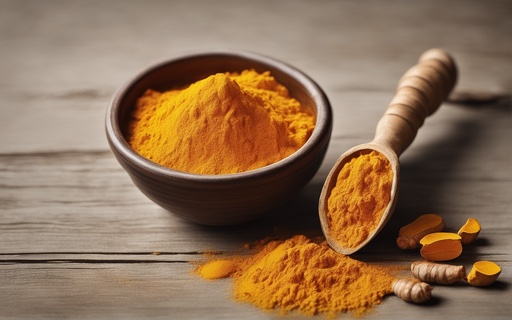Internet Asks: "Turmeric and Breastfeeding"
Turmeric, celebrated for its anti-inflammatory and antioxidant properties, has been utilized in traditional medicine for centuries. However, nursing mothers often wonder if consuming turmeric is safe during breastfeeding. This article sheds light on the interplay between turmeric and breastfeeding.
sponsored links

Turmeric Overview
Derived from the rhizomes of the plant Curcuma longa, turmeric it has gained immense popularity in recent years as a health supplement. The primary beneficial compound in turmeric is curcumin, which is praised for its potential anti-inflammatory, antioxidant, and anti-cancer properties.
Turmeric and Breastfeeding
Turmeric, when used in moderate amounts typically found in foods, is considered safe during breastfeeding. Adding it as a spice to dishes can provide flavor and potential health benefits without posing risks to the both the nursing mother and the baby.
Potential Benefits
- 1. Anti-Inflammatory Properties: The anti-inflammatory properties of curcumin might assist in reducing postpartum inflammation or mastitis, a painful inflammation of breast tissue.
- 2. Boosting Immunity: The antioxidant properties of turmeric can help strengthen the immune system, potentially providing protection against common illnesses.
- 3. Aid Digestion: It may also aid in digestion and help combat digestive issues, which are relatively common post-delivery.
- 4. Mood Enhancer: Some studies suggest that turmeric may have antidepressant effects, which could be beneficial for mothers dealing with postpartum depression or anxiety.
sponsored links
However, there are considerations to keep in mind:
-
- Moderation is Key: While using turmeric as a spice in food is generally safe, high doses, especially from supplements, might not be advisable during breastfeeding. The concentration of curcumin and other compounds is much higher in supplements than in dietary turmeric.
-
- Possible Side Effects: In excessive amounts, turmeric might cause gastrointestinal discomfort. It's also a natural blood thinner, so consuming large amounts may affect individuals taking anticoagulant medications.
- - Limited Research: There's limited research on the direct impact of turmeric or curcumin consumption during breastfeeding. What is known is largely based on anecdotal evidence or derived from broader population studies.
-
- Allergies: As with any food or supplement, there's a risk of an allergic reaction. If a nursing mother or her baby shows signs of an allergy, such as rash, itching, or digestive issues after the mother consumes turmeric, it's essential to seek medical advice.
- - Drug Interactions: Turmeric might interfere with the absorption and effectiveness of certain medications. It's crucial for breastfeeding mothers on medication to discuss with healthcare professionals before incorporating significant amounts of turmeric into their diet.
Seek Professional Advice
Every individual’s health profile is different, and what's safe for one may not be for another. Therefore, it's imperative to consult healthcare professionals for personalized advice before incorporating turmeric or turmeric supplements into the diet while breastfeeding.
Conclusion
While turmeric boasts numerous potential health benefits, breastfeeding mothers should exercise caution. If a mother chooses to incorporate turmeric into her diet, it's best to do so in moderation and be attentive to any adverse reactions in both herself and her baby. Always prioritize consultation with a healthcare professional before making significant dietary changes or starting new supplements during breastfeeding.
Disclaimer: This article is meant to provide general information and should not be considered medical advice. Always consult with a healthcare professional or lactation consultant about any concerns or changes related to diet and breastfeeding.
sponsored links
References
1. Johns Hopkins Medicine. Turmeric Benefits. https://www.hopkinsmedicine.org/health/wellness-and-prevention/turmeric-benefits
2. Hewlings SJ, Kalman DS. Curcumin: A Review of Its Effects on Human Health. Foods. 2017 Oct 22;6(10):92. doi: 10.3390/foods6100092. PMID: 29065496; PMCID: PMC5664031.
3. Chaudhari SP, Tam AY, Barr JA. Curcumin: A contact allergen. J Clin Aesthet Dermatol. 2015;8:43–8.
4. WebMD. Turmeric - Uses, Side Effects, and More. https://www.webmd.com/vitamins/ai/ingredientmono-662/turmeric
5. MedicineNet. What Are the Negative Effects of Turmeric. https://www.medicinenet.com/what_are_the_negative_effects_of_turmeric/article.htm
6. Britannica. Turmeric. https://www.britannica.com/plant/turmeric
People are also reading...
🍏Is Whole30 Gluten-Free?
🥛 Does Milk Help Heartburn?
🍓 Are Strawberries Acidic?
Ready to level-up?
Create meal plans 10x faster, follow up with your clients through our mobile app, and never struggle with meal planning or recipe management again.